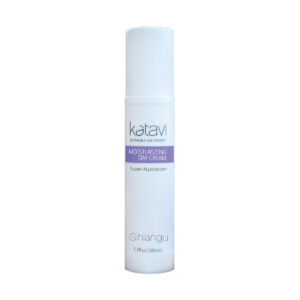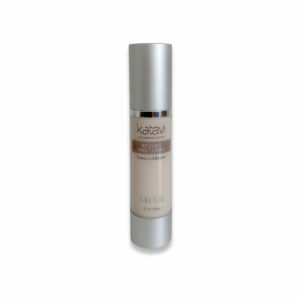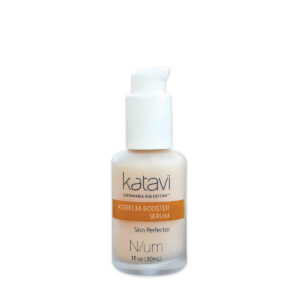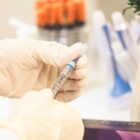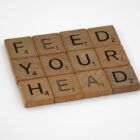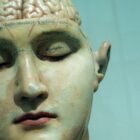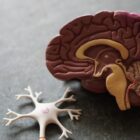- Understanding Testosterone’s Role in Cognitive Function
- Identifying the Link Between Testosterone Deficiency and Brain Fog
- The Impact of Testosterone Replacement Therapy on Mental Clarity
- Mechanisms of Action: How TRT Enhances Mental Clarity
- Considerations and Potential Risks of Testosterone Replacement Therapy for Brain Fog
- Snippet
Understanding Testosterone’s Role in Cognitive Function
Testosterone, often associated with physical attributes such as muscle mass and libido, also plays a critical role in cognitive function and mental clarity. Beyond its traditional role in reproductive health, testosterone receptors are distributed throughout the brain, including regions involved in memory, attention, mood regulation, and executive function. Research suggests that testosterone influences various aspects of cognitive performance, including verbal fluency, spatial abilities, memory retention, and processing speed. Therefore, fluctuations or deficiencies in testosterone levels can manifest as cognitive symptoms such as brain fog, difficulty concentrating, memory lapses, and mood disturbances.
Identifying the Link Between Testosterone Deficiency and Brain Fog
Testosterone deficiency, also known as hypogonadism, has been associated with cognitive impairment and decreased mental clarity in some individuals. While the precise mechanisms underlying this relationship are complex and multifaceted, several factors may contribute to cognitive symptoms in individuals with low testosterone levels. For example, testosterone plays a role in neurotransmitter synthesis and modulation, including dopamine, serotonin, and noradrenaline, which are essential for cognitive function and mood regulation. Additionally, testosterone deficiency may lead to alterations in brain structure and connectivity, particularly in regions implicated in cognitive processing and emotional regulation.
The Impact of Testosterone Replacement Therapy on Mental Clarity
Testosterone replacement therapy (TRT) offers a potential solution for individuals experiencing cognitive symptoms associated with testosterone deficiency. By restoring testosterone levels to within the normal physiological range, TRT aims to alleviate cognitive impairment and enhance mental clarity. Research suggests that TRT may improve cognitive function, including memory, attention, executive function, and mood, in some individuals with hypogonadism. Additionally, TRT has been shown to enhance overall well-being and quality of life, which can indirectly contribute to improved mental clarity and cognitive performance.
Mechanisms of Action: How TRT Enhances Mental Clarity
TRT may enhance mental clarity through various mechanisms, including:
- Neurotransmitter modulation: Testosterone influences the synthesis and activity of neurotransmitters involved in cognitive function and mood regulation, such as dopamine, serotonin, and noradrenaline.
- Neuroprotective effects: Testosterone may exert neuroprotective effects, promoting neuronal survival and synaptic plasticity, which are essential for cognitive health.
- Anti-inflammatory properties: Testosterone has been shown to have anti-inflammatory effects, reducing neuroinflammation and oxidative stress, which are implicated in cognitive decline.
- Improvement of mood and well-being: Testosterone replacement therapy can alleviate symptoms of depression and anxiety, enhancing overall mental clarity and cognitive function.
By addressing these underlying mechanisms, TRT may help individuals experiencing brain fog or cognitive impairment regain mental clarity, focus, and cognitive function.
Considerations and Potential Risks of Testosterone Replacement Therapy for Brain Fog
While testosterone replacement therapy holds promise for alleviating cognitive symptoms associated with testosterone deficiency, it’s essential to consider potential risks and limitations. TRT may not be effective for all individuals with cognitive symptoms, particularly if other underlying factors contribute to cognitive impairment. Additionally, TRT may carry risks, including potential side effects such as fluid retention, acne, mood swings, and cardiovascular complications. Therefore, individuals considering TRT for cognitive symptoms should undergo a comprehensive evaluation by a qualified healthcare provider to assess the potential risks and benefits and develop a personalized treatment plan tailored to their specific needs and circumstances.
In conclusion, testosterone replacement therapy offers a potential solution for individuals experiencing brain fog or cognitive impairment associated with testosterone deficiency. By restoring testosterone levels to within the normal physiological range, TRT may enhance mental clarity, focus, and cognitive function, improving overall quality of life. However, it’s essential to weigh the potential risks and benefits of TRT and consult with a qualified healthcare provider to determine the most appropriate treatment approach for addressing cognitive symptoms.
Testosterone Replacement Therapy and Mental Clarity – snippet
Discovering clarity of mind is not just about focus; it’s about understanding the intricate relationship between testosterone levels and cognitive function. Testosterone replacement therapy (TRT) offers a promising avenue for individuals grappling with brain fog and cognitive impairment due to testosterone deficiency. By restoring testosterone levels to within the normal range, TRT may help alleviate cognitive symptoms such as difficulty concentrating, memory lapses, and mood disturbances. Through its effects on neurotransmitter modulation, neuroprotection, and anti-inflammatory properties, TRT holds the potential to enhance mental clarity and overall cognitive function, empowering individuals to regain control over their cognitive health.
Related items..
-
AnteAGE® Overnight Brows Serum 3.5ml
$75.00 -
AnteAGE® Eye (15ml)
$105.00 -
PCA Skin Hyaluronic Acid Boosting Serum 3oz
$315.00 -
Katavi Radiant-S Facial Serum NEW
$55.00 -
Katavi Natural Cleansing Wash
$33.00 -
Katavi Moisturizing Day Cream
$43.00 -
Katavi Tula Tula – Intensive Night Care
$43.00 -
N/um – Kigelia Booster Serum
$46.00 -
Katavi Hluba – Enzymatic Peel
$30.00 -
Katavi Miracle Hydration Oil
$40.00
Sign Up for Monthly Newsletter to Learn & Save
Stay current on promotions, discounts and sales.
Get Your Learn On

Boosting Bone Health and Immune Function with Sermorelin and Testosterone Stacking









